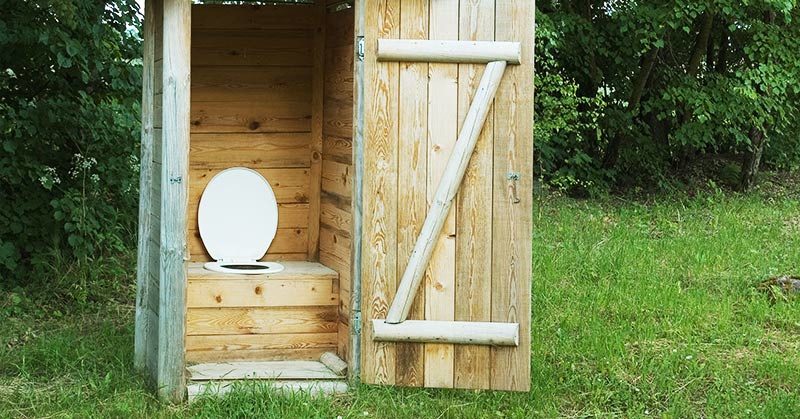There are so many different ways to make your home more eco-friendly, however this is one you may not have thought of: Composting toilets. Not only can they help you save on your water bill, but they save liters upon liters of clean, drinkable water from literally being flushed down the drain.
Composting Toilets Are Environment-Saving Powerhouses
Composting toilets essentially change the way we view our own waste: as organic matter to be benefitted from, not flushed away. Just like the food waste we put in the compost bin, the human waste collected by composting toilets can also be used to improve the environment both by wasting far less clean drinking water and returning important nutrients to the earth. (1)
“The word waste doesn’t exist in nature,” says Fin Jordão, a biologist and compost toilet expert from the Centre for Alternative Technology in Powys, Wales. “Waste is not a word fit for the 21st century and the ecological society we’re trying to build.” (1)
While improved sanitation has saved millions of lives in the last century, the environmental and economical impact of flushing clean water down the drain, then having to spend energy and money treating that water, is growing daily. Composting toilets allow us to turn that around. (1)
Not a New Idea
Repurposing human waste isn’t some radical new concept. During the time when Europe was dumping their human waste onto the streets below them, Japan was taking a different tactic. Their land was much less hospitable for growing food and they needed all the help they could get. (1)
They began collecting humanure or “night soil” as they called it. Boats came to the cities each night to collect the waste which was then sold to farmers. It was so highly valued that farmers who couldn’t afford it actually stole human feces. (1)
Currently some amount of human biosolids are reclaimed in the water treatment process. Composting toilets, however, have the ability to do this much more effectively, efficiently, and economically. (1)
“Right now, we flush our human waste into a water-based treatment works and it’s very hard to get all of the nutrients out once we’ve mixed it with this huge volume of wastewater,” says Abraham Noe-Hays, research director at the Rich Earth Institute in Brattleboro, Vermont. “If we can separate human waste at source, we can reclaim the nutrient value as a resource.” (1)
Different Uses for Different Waste
As it turns out, once it’s treated human urine actually makes a fantastic fertilizer. Urine is high in phosphorus which is used in many commercial fertilizers. In those manufactured fertilizers, however, the phosphorus is mined from phosphate rock. Not only is this more expensive and difficult to do, but this rock is not renewable: At some point, it will run out. Our urine, of course, will not. (1)
“Urine is easier to capture and transport, store and treat,” says Noe-Hays. “That’s where most of the fertiliser is.” (1)
Solid waste has its place, too, however its treatment time is much longer. (1)
Read: Why Hemp Toilet Paper Is An Eco Friendly Alternative To Tree-Based Tissues
How Soon Could We Make the Switch to Composting Toilets?
While having an entire city full of homes and businesses with composting toilets isn’t exactly feasible yet, we can slowly start making our way there. (1) Currently, composting toilets are used in places such as (1):
- Campsites
- Mobile homes
- Outdoor concerts and festivals
- Golf courses
- Off-grid living situations
There are an increasing number of people who are beginning to install composting toilets right in their own homes. According to Noe-Hays, the reactions from people have been surprisingly positive. (1)
“there are a number of people who have permanently installed urine-diverting toilets. We show up twice a year, collect [the urine] and take it to a central treatment location, where we pasteurise it and distribute it to farmers, who use it primarily to grow hay. People also use it themselves, in their gardens.” (1)
According to roundwood timber framer for eco builder Ty Pren David Taylor, the waste from Western diets is actually quite high in nutrients and minerals that are excellent for the soil. Instead of contaminating water with it, then processing that water, he says it’s better to harvest it right away and use it for a better purpose. (1)
“Humanure could be collected by [residents in] a block of flats before being carted off and composted, or it could be processed through a methane digester and that energy could be used within the building itself,” (1)
8 Best Composting Toilets
The Spruce published a list of their top eight composting toilets to make it easier for you to pick one o install in your home. (2) Their list is as follows (2):
- Nature’s Head Composting Toilet with Spider Handle: Best overall
- Sun-Mar Excel Self-Contained Composting Toilet: Best for odor
- Sun-Mar Centrex 3000 Non-Electric: Best high capacity, non-electric
- Sun-Mar Electric Composting Toilet System: Best high capacity electric
- Sun-Mar Spacesaver Self-Contained Composting Toilet: Best compact
- Stansport Portable Toilet: Best budget
- Sun-Mar GTG Portable Electric Waterless Toilet: Best portable
- Sun-Mar Excel Touchless Flush Composting Toilet: Best non-electric
While we may be far off from the whole world using composting toilets, that doesn’t mean you can’t start in your own home. This list will give you a good place to start and each will come with some guidance as to properly use or get rid of your waste.
Keep Reading: Scientists Discover How To Make Bricks Out Of Human Waste
Disclaimer: The Hearty Soul is a participant in the Amazon Services LLC Associates Program, an affiliate advertising program designed to provide a means for sites to earn advertising fees by advertising and linking to Amazon.com

